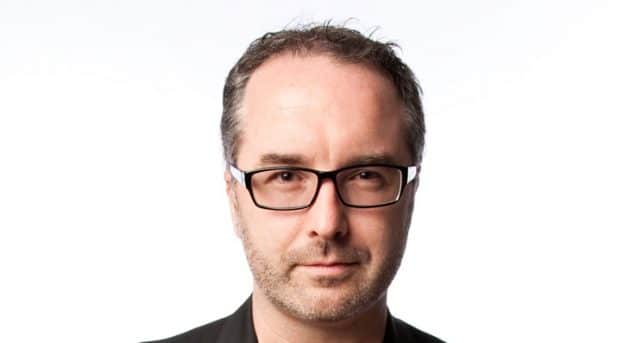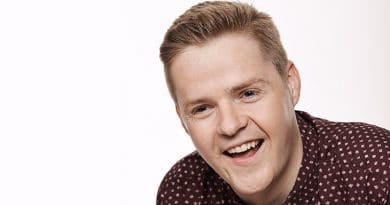MICF: Stand-up
There’s much more to the Melbourne International Comedy Festival than stand-up, but there are seemingly endless stand-ups. This form of solo storytelling can be extraordinary as comedians bare their souls to strangers by sharing their most intimate and embarrassing moments. Others get their kicks from standing on stage being a total dick and whinging if no one laughs. Most are somewhere along the scale.
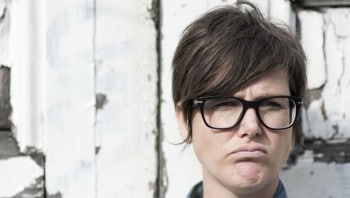
Hannah Gadsby, Donkey
29 March 2015
Hannah Gadsby finds the spot where wanting to cry becomes needing to laugh so deeply that it makes you feels better about something you hate about yourself
At the beginning of her new show Donkey, she says that’s she’s always amazed to see a room full of people wanting to see her. People want to see her because she lets us share her experiences and discover that no matter how different we are, that we have far more in common then we ever thought.
The donkey in her show is Hannah. It starts when she hates the barista at her nearest coffee shop. She keeps going because it’s the nearest. He’s the type of person who, she knows, thinks he’s better than she is. He’s a dressage horse, she’s a donkey. It’s about feeling so out-of-step with the rest of the world that it’s easier to stay inside with mounting dishes. And it’s about her finding out that her diagnosis of depression was wrong.
It’s also a show about winning and getting things right and knowing that of course a unicorn will love a donkey, because donkies are gorgeous and loving and so much more fun than a smarmy horse.
All of this is rolled up into a tightly written, beautifully structured piece that lets stage Hannah bring enough of real Hannah with her and leave them both safe and loved.
Hannah Gadsby is simply one of the best stand-up comedians around.
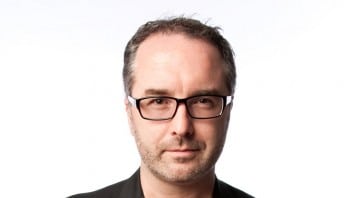
Justin Hamilton, Snacks
1 April 2015
Another stand-up I never want to miss is Justin Hamilton. Mixing stand-up with scripted storytelling, he’s written and performed some of the most memorable and publish-them-because-they-are-so-well-written Comedy Festival shows I’ve seen.
He’s been performing comedy since the 1990s and, according to his web page, did 188 gigs last year and, on 3 April, was up to 79 this year. And he writes a blog and records the very popular podcast Can you take this photo please? – that all aspiring and established comedy writers should listen to.
After last year’s Johnny Loves Mary Forever 1994 about going to Afghanistanto entertain the Australian troops, this year’s Snacks is less harrowing. It’s more traditional stand-up as he meets his audience at the door, talks to them from the small stage – in a makeshift room that’s nearer the executive car park than the spectacular Town Hall – and happily goes off on tangents, which still come back to theme and snacks.
Being part of the Snacks audience is like being with a room of friends as the common experiences about over thinking, being happy about growing older, being excited about being nerd, and never saying no to snacks ripple through the room.
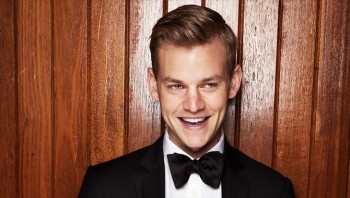
Joel Creasy, Hurricane
5 April 2015
Joel Creasy has become one of the big-venue, tv-famous stand-ups who define comedy festivals and whose audiences choose shows because they know names from tv. As I liked him on I’m a Celebrity, Get Me Out of Here (feel free to judge me), I was curious to see how he’d turn his burst of popular fame and the fiction of reality television into a festival show.
Hurricane is just a name to justify the festival-standard bit about having to name his show before he wrote it. And the room laughed at the joke and at the snarky twink character telling it.
Telly fame lets you play to 300-seat rooms when you’re 24; rooms filled with people who wet themselves at the mention of Mad Maureen McCormick. Yes, he talks about being in the jungle and I don’t think there was anyone there who hadn’t seen I’m a Celebrity.
And they went nuts for the a bit about middle-aged and ugly male comedians who perform in suburban pubs and make non-PC jokes. Jokes about gay sex (“you can get poo on your dick”), about gay clubs (Poof Doof, what a funny name) and fatties (no one likes ugly people), and the casual misogyny of lesbian jokes (they build the podium the gay boys dance on).
But these are Joel’s jokes.
Sure, comedy is subjective, but – laugh or not – it comes down to “who are we laughing at?”. This audience were laughing AT the performer, not laughing WITH him. The laughs may sound the same, but when you’re sitting among them, they feels horrible.
With performers like Hannah and Justin, the audience laugh with the performer as they recognise behaviour or experiences that they share; the shared experience in Hurricane is laughing at gays, lesbians, nutters and fatties.

